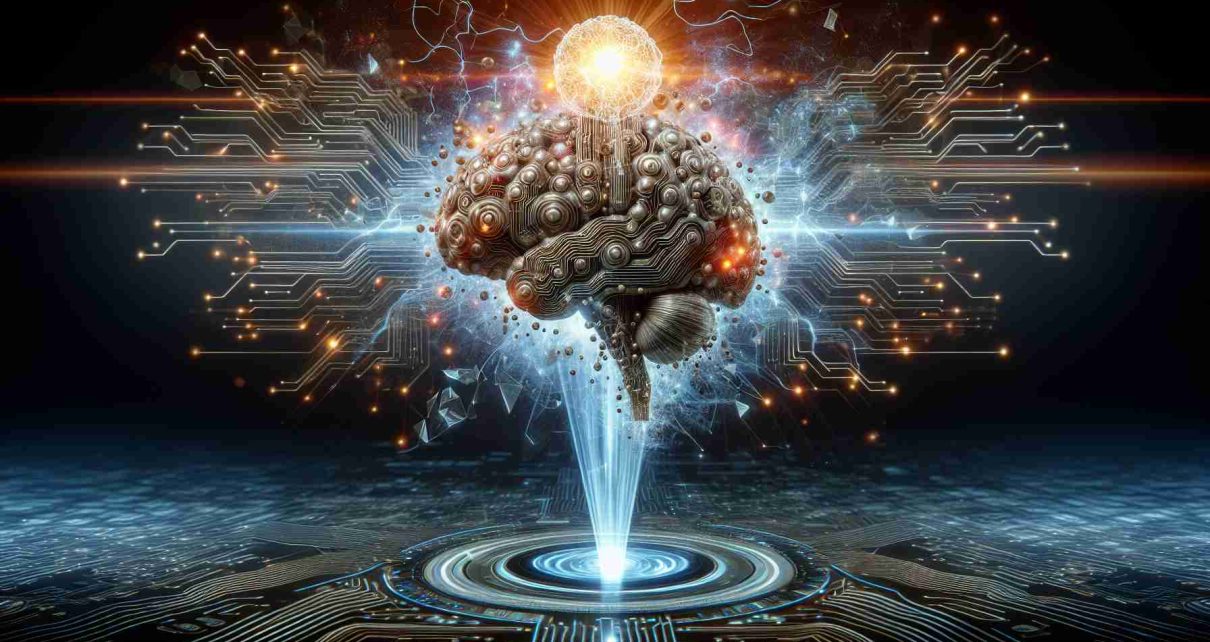A Growing Buzz Over AI Developments
The conversation around artificial intelligence is heating up, especially after recent revelations about a closed-door meeting involving OpenAI and U.S. government representatives. Speculations about OpenAI creating artificial general intelligence (AGI) have surged, with anticipation mounting over what Sam Altman, the OpenAI CEO, might reveal in the coming weeks.
Amid this whirlwind of excitement, Altman took to social media to address the rampant rumors, emphasizing that the hype surrounding AI is spiraling out of control. He clarified that reports suggesting an imminent release of AGI were exaggerated, stating firmly that OpenAI has not developed AGI and will not do so next month. Instead, Altman urged the public to temper their expectations significantly, hinting that they have exciting advancements in the pipeline, albeit not of that magnitude.
The Axios article that triggered these discussions also mentioned that influential figures in tech, including Meta’s Mark Zuckerberg, are discussing substantial AI breakthroughs. Zuckerberg indicated that advancements in AI could see machines capable of handling intermediate engineering tasks by 2025.
While multiple companies, like Microsoft and Google, are on a quest to build AI agents for various tasks, several experts, including OpenAI’s Noam Brown, are reminding us that many critical research issues remain unresolved. The future of AI may be bright, but it seems we still have a long way to go.
Broader Implications of AI Advancements
The accelerating pace of artificial intelligence development carries profound implications for society and the global economy. As technology giants race to innovate, the competitive landscape reshapes industries, leading to job displacement in traditional sectors and a growing demand for AI-savvy professionals. This shift could exacerbate existing inequalities in the labor market, necessitating urgent policy interventions to ensure a smooth transition for affected workers.
Culturally, the integration of AI into daily life is already evident, influencing everything from entertainment to education. With platforms leveraging AI to personalize content, consumers find themselves in a feedback loop, impacting their interests and choices. Such transformations also raise ethical questions regarding data privacy, algorithmic bias, and the ramifications of human-like machines in society.
On an environmental front, the energy demands of developing and training AI systems could have significant consequences. The carbon footprint of data centers is a growing concern, leading to calls for more sustainable practices in AI research. Future trends might see a push towards greener technologies and more efficient model training processes, which could mitigate some environmental pressures.
Looking ahead, the long-term significance of AI advancements may center on collaborative rather than competitive approaches. Striking a balance between innovation and responsible AI deployment will be critical in shaping a future where technology enhances human capabilities rather than undermining them. The global dialogue surrounding these issues will likely evolve, steering policy and regulatory frameworks in a direction that reflects a collective understanding of both the potential benefits and risks inherent in the AI landscape.
The Race for AI: What You Need to Know About Recent Developments and Future Prospects
Understanding the Landscape of AI Advancements
The field of artificial intelligence (AI) is experiencing unprecedented levels of excitement and speculation, driven by ongoing developments and high-profile discussions among industry leaders. A recent closed-door meeting between OpenAI and U.S. government officials has intensified these conversations, especially regarding the potential for artificial general intelligence (AGI). However, as anticipation builds, it is essential to sift through the hype and assess the true state and future of AI.
Key Features of Current AI Technologies
1. Natural Language Processing (NLP): Current AI systems are increasingly proficient in understanding and generating human language, which has applications in chatbots, customer service, and content creation.
2. Machine Learning (ML): Companies like Microsoft and Google are leveraging ML to enhance their products and services, enabling improvements in algorithms that can learn from data without being explicitly programmed.
3. Computer Vision: AI’s capability in analyzing and interpreting visual data is seeing rapid advancements, paving the way for innovations in fields such as healthcare, automotive, and security.
Pros and Cons of AI Developments
Pros:
– Increased Efficiency: AI can automate routine tasks, leading to significant time savings and productivity gains.
– Enhanced Decision Making: AI systems can analyze vast amounts of data quickly, providing insights that can drive better business decisions.
– Innovation in Products: Companies are using AI to create novel solutions, reshaping industries and creating new market categories.
Cons:
– Ethical Concerns: The rapid integration of AI raises questions about data privacy, bias in algorithms, and the potential for job displacement.
– Complexity of Implementation: Businesses may face challenges in integrating AI technologies into existing processes without adequate infrastructure.
– Unrealistic Expectations: As OpenAI’s CEO Sam Altman pointed out, public expectations for AI capabilities often exceed the current technological realities.
Insights from Industry Leaders
Sam Altman, CEO of OpenAI, recently cautioned against the over-exaggeration of AI’s progress, emphasizing that while there are advancements on the horizon, AGI development is not imminent. Mark Zuckerberg of Meta also echoed these sentiments, suggesting that while significant breakthroughs in AI are anticipated, especially regarding machines capable of intermediate engineering tasks by 2025, the journey toward those milestones will require substantial research and development.
Predictions and Future Trends in AI
1. Continued Investment: Companies are predicted to increase their investments in AI research, focusing on narrowing down ethical frameworks and enhancing data safety.
2. Collaboration Across Sectors: Future advancements may emerge from collaborations between tech giants and regulated sectors, such as health and education, leading to tailored AI solutions.
3. Integration with Edge Computing: The combination of AI with edge computing will likely transform how data is processed, enabling real-time applications in various industries.
Use Cases of Emerging AI Technologies
– Healthcare: AI is expected to revolutionize diagnostics through image analysis and predictive analytics, improving patient care and operational efficiencies in healthcare facilities.
– Finance: Automated trading systems and AI-driven risk assessment tools will enhance decision-making and operational costs for financial institutions.
– Retail: Personalization engines powered by AI will offer customized shopping experiences, driving customer satisfaction and loyalty.
Limitations and Challenges Ahead
The path to achieving truly intelligent AI systems is laden with challenges, including:
– Data Bias: Ensuring AI operates fairly and without bias remains a critical hurdle.
– Regulatory Compliance: As governments catch up with technology, compliance will be vital for continued innovation.
– Public Skepticism: Building trust among users will be necessary for broader adoption of AI technologies.
In conclusion, the current excitement around AI innovations should be met with informed skepticism and a clear understanding of the existing limitations and ethical implications. As industry leaders strive for groundbreaking breakthroughs, the need for grounded expectations and responsible AI development remains paramount.
For more insights on the future of AI, visit OpenAI.



